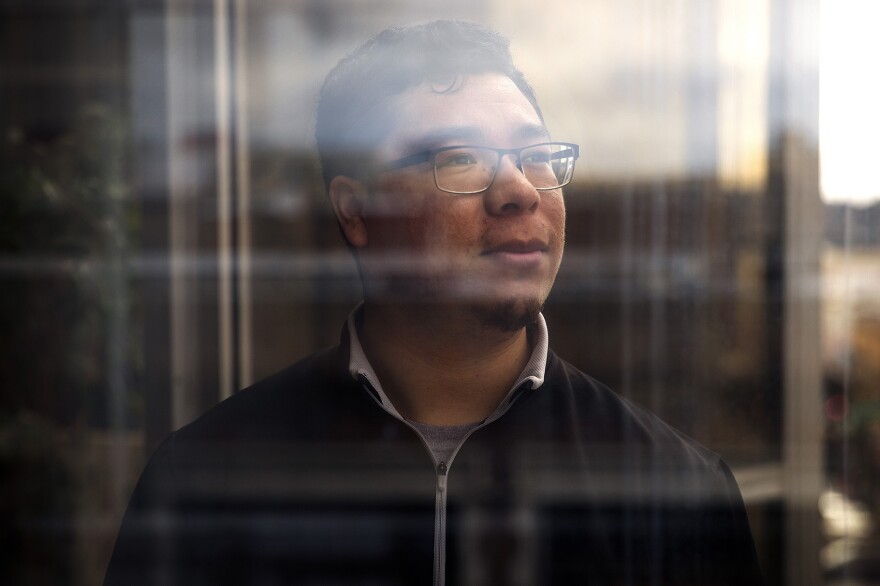Retired school teacher Michael Hobson is displeased by how much his property tax is increasing, even though lawmakers did it to fully fund public schools.
He asked KUOW: What about all that lottery money? Didn't they promise us it would go to schools? That question brings us to...
Myth #1: The state lottery was set up by voters to pay for public schools.
No, it wasn't.
The state created the lottery in 1982 during a Reagan-era recession. Lottery dollars were allocated for the general fund, not just K-12 education.
Lisa Macfarlane, an education activist, said the "lottery funds basic education" myth came from lottery advertising.
“There was a mismatch between the lottery marketing campaign that was going on, and what voters expected and thought," Macfarlane said.
In the mid-1990s, Macfarlane worked on campaigns in Seattle to raise school levies. Voters told her they opposed raising more money for schools because they believed the state lottery “already had education covered.”
A few years later, Macfarlane worked on statewide Initiative 728 to fund education improvements, like lower class sizes. They needed money to help pay for it, and an idea emerged: Let’s turn that lottery myth into reality.
They wrote I-728 to redirect the biggest chunk of lottery revenue into the Student Achievement Fund and the Education Construction Fund. In 2000, it passed.
The lottery celebrated with commercials like this one that touted the big jump in support for K-12 education:
https://youtu.be/LtUVSlXOCq0
That’s not the end of the story, though. Lawmakers changed how lottery money is spent – twice – after voters passed 728.
The first time was in 2009, after the housing bubble burst, when the state was (again) desperate for cash. Lawmakers redirected lottery dollars back to the general fund.
The next year, in 2010, the state redirected the money again - this time to higher education, for the Opportunity Pathways Account.
That money now helps students like Gabino Abarca, who grew up picking cherries in the fields of eastern Washington with his family. Abarca is a public health major at the University of Washington; he studies heat-related illnesses in farm workers.
Myth #2: Lottery revenue could cover K-12 education, right?
Well, no. But that’s what you might think if you heard this recent radio advertisement for the Washington State Lottery:
CUSTOMER: I’ll get the soda. A hot dog. And, I’ll take a scratch ticket. SOUND EFFECT: Horns go off. CLERK: Congratulations! CUSTOMER: But I haven’t played yet. CLERK: Doesn’t matter. You bought a ticket, that’s all it takes! Just last year, Washington’s Lottery raised $129 million for education. $12 million went to stadiums, and then $36 million went to your favorite local retailers, like me. CUSTOMER: Really? CLERK: Yup. Winners took away $433 million! CUSTOMER: Wow! It’s like when I play, Washington wins. CLERK: Couldn’t have said it better myself.
Today, the lotto generates $100 million plus per year for higher education and – recall – none of that pot now goes to K-12 education.
Not that it would make a big dent. K-12 public schools will cost about $10 billion for FY 2018. Said state Senate education chair Lisa Wellman, “In terms of the overall budgets, it is really a very small portion."
Marcus Glasper, who directs the state lottery, said he understands that people may be a bit confused about where the money goes. He explained that in the last fiscal year, the lottery brought in around $676 million in gross revenue. But most of that - over 60 percent - went back to players. The next biggest chunk ($126.8 million) went for higher education.
Glasper said over $12 million went to help pay off Century Link Field. Beyond that, $16.8 million went to the general fund.
Sorry Mr. Hobson, but your property taxes would go up this year, either way.
Myth #3: Buying a lottery ticket gives people hope.
This last myth is the implicit message in nearly every lottery advertisement.
https://youtu.be/7G60xAD65_M
What are the odds of actually winning a million dollars or more in the Washington State lottery? It’s just 1 in 6.99 million, and to strike it uber-rich with Powerball, it’s 1 in 293 million.
You've got a much better chance of being killed by a vending machine, or a falling coconut.
National and international research also suggests the lottery is played disproportionately by low-income people, who often have unrealistic expectations about their odds.
Here in Washington State, however, the lottery reports that “players are less likely to report household income less than $20,000 per year, and more likely to report income in the range $75,000 to $100,000 per year, than non-players.”
But there’s also likely a gap in why people play the lottery. One study from the late 1990s found that a majority in low-income households believed they had a better chance of accumulating $500,000 by winning the lottery than by saving and investing.
Whereas higher-income players buy lottery tickets mostly for “fun,” low-income households are more likely to play because they need the money.
In other words, the lottery doesn't give people hope. It gives them false hope.
https://www.youtube.com/watch?v=vyOg4JCTEXA
Correction, 2:30 p.m., 4/3/2018: An earlier version of this story understated the amount the state spends on K-12 education. In fiscal year 2018, it will spend about $10 billion.
_


